Enhancing Employee Accountability Through Task and Approval Management
KEY TAKEAWAYS
- Accountability drives 21% higher profits through engaged, responsible employees.
- Structured systems automate approvals and boost workplace productivity efficiently.
- Tools like Lark Base make ownership and responsibilities completely transparent.
- Communication linked with actions prevents accountability gaps or misunderstandings.
Studies have emphasized how accountability matters in today’s modern workplaces. Gallup found companies with higher levels of employee engagement and accountability achieve 21% higher profits than companies with less accountability.
As workplaces operate at a fast pace, organizations now rely on structured systems to automate processes, provide visibility to approvals or step-backs, and provide collaborative environments for task completion.
This article will look at structured processes and approvals using project management tools to increase accountability as well as productivity, to help create organized and decisive decision-making in organizations.
Lark Base: making accountability visible
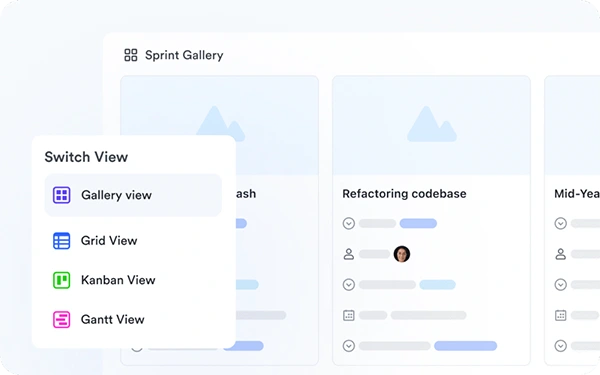
Lark Base
The first step in accountability is clarity—everyone must know who owns what and by when. Lark Base makes responsibilities explicit by capturing project milestones, tasks, and ownership details in structured views. Grid and kanban formats give teams flexibility to track work the way they prefer, while dashboards provide leaders with instant visibility into progress. Dependencies show where delays may spread across projects, helping employees see how their work affects others.
With automated workflows and data visualization, Lark can support a wide range of needs—from CRM app scenarios to serving as a centralized data hub or project management software.
Customer data, campaign milestones, and ownership records live together, ensuring accountability is not abstract but directly tied to customer and business outcomes. Employees view their role not as a separate task but as part of a larger workflow, making responsibility clearer and more motivating.
Lark Approval: accountability through traceable decisions
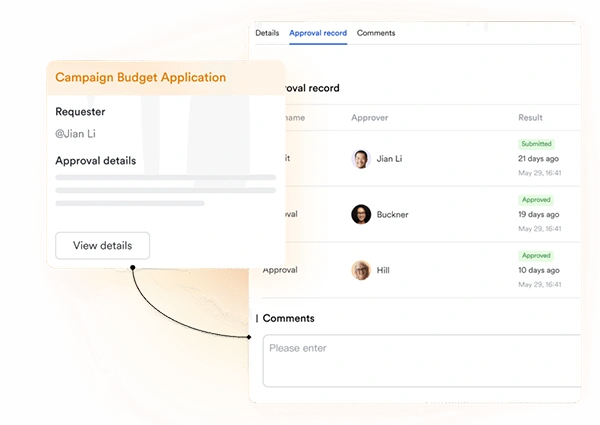
Lark Approval
Approvals are often where accountability weakens. Requests disappear in inboxes, decisions face delays, and responsibility for sign-offs becomes uncertain. Lark Approval solves this by creating structured, traceable processes for decision-making.
Custom forms capture the right details from the start, routing rules send requests to the correct reviewer, and notifications surface pending actions in Messenger where teams already collaborate.
Every approval is logged and tied to the relevant project, making accountability explicit. Employees understand not only who is responsible for making requests, but also who granted approval and at what time.
By running on an automated workflow, approvals become predictable checkpoints rather than vague obstacles. This reduces excuses for delays and reinforces that accountability extends to both the requester and the approver.
Lark Tasks: reinforcing ownership in daily work
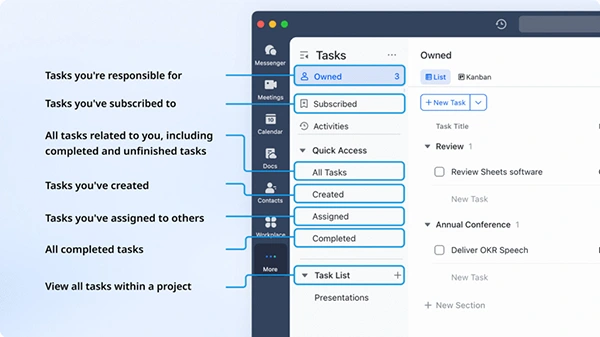
Lark Tasks
Accountability depends on the consistent discipline and effort involved in managing tasks. Lark Tasks simplifies this process by connecting the work directly to project-level goals as well as individual ownership.
Employees can create tasks, assign deadlines, set priorities, and prioritize ownership while managers have visibility on workloads and progress. Subtasks help break larger goals into manageable actions, and ensure nothing falls through the cracks.
The power of accountability stems from transparency. Everyone knows what’s pending, what’s overdue, and who is responsible for each deliverable. Employees receive notifications and reminders of deadlines ahead of time and as progress is made, we keep the work visible until it is marked done! For managers, Tasks removes any ambiguity of “who was going to do this” — accountability is built into the workflow.
Lark Messenger: accountability through clear communicat
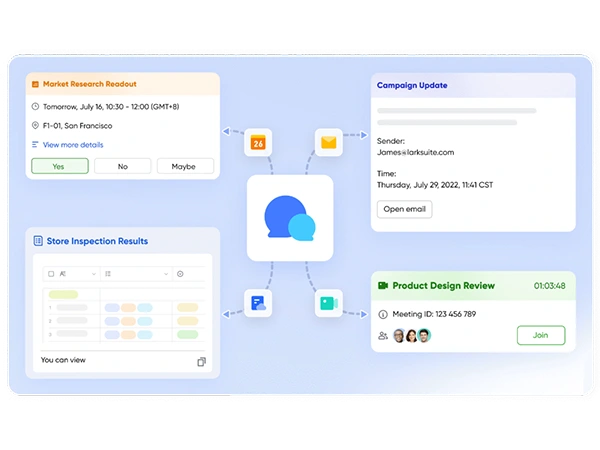
Lark Messenger
One major reason accountability weakens is communication gaps. Instructions hidden in emails or chats often go unnoticed, leaving employees unsure about expectations. Lark Messenger solves this by linking communication directly with action. Threads keep discussions organized by topic, pinned messages highlight final decisions, and files or updates can be shared right inside conversations.
This structure ensures that commitments made in Messenger don’t vanish into noise. When a sales manager assigns follow-ups after a campaign, pinning the conversation and converting it into tasks removes any chance of misunderstanding.
Buzz notifications escalate urgent updates, ensuring accountability for time-sensitive work. Messenger keeps communication aligned with accountability instead of allowing it to drift.
Lark Minutes: ensuring meetings translate into ownership
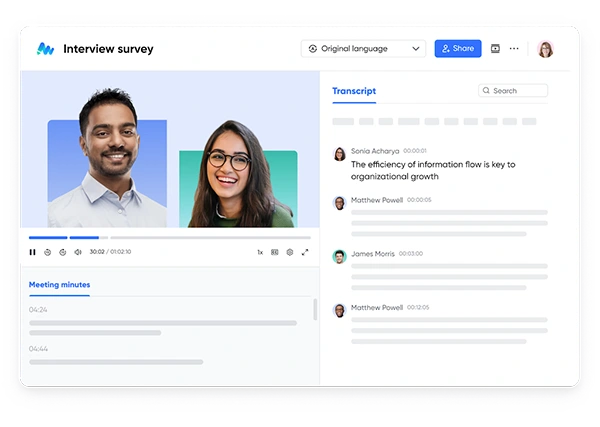
Lark Minutes
Meetings are where we agree to take on many different responsibilities, but without follow up, accountability fades away. Lark Minutes solves this problem by turning discussions into records of ownership.
With automatic transcription and a record of exactly what was said, AI-generated summaries synthesize the major issues, and action items are captured into tasks. Speaker detection tracks who made each commitment, ensuring all ambiguity is completely removed.
This solves the classic “I didn’t know I was responsible” challenge. With minutes, accountability is documented, transparent, and tied directly to actions. Employees finish meetings with more than information; they leave with trackable commitments, ensuring strategy turns into action with measurable outcomes.
Lark Calendar: accountability in time management
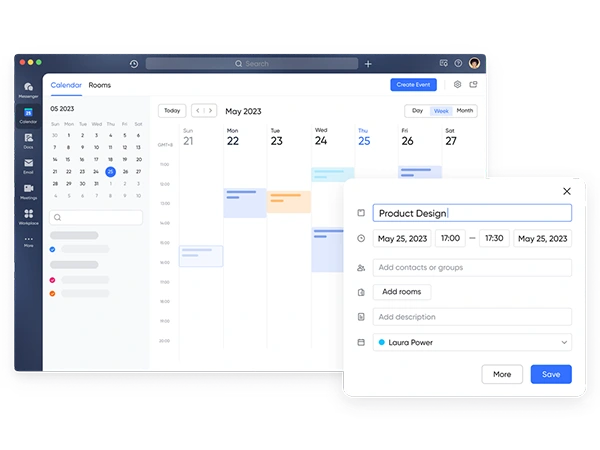
Lark Calendar
Keeping deadlines is as important as taking responsibility. Lark Calendar helps make sure everyone knows what’s due by putting all schedules and project dates in one place. Teams can align their calendars with project goals, ensuring everyone understands when their tasks are due relative to the team’s work. Reminders help people not miss deadlines, and repeating events keep regular tasks in sight.
By matching personal schedules with company due dates, calendar makes sure accountability includes both what needs to be done and when. No one can claim they were unaware of a deadline—the system ensures everyone views and adheres to the schedule.
Lark OKR: linking accountability to outcomes
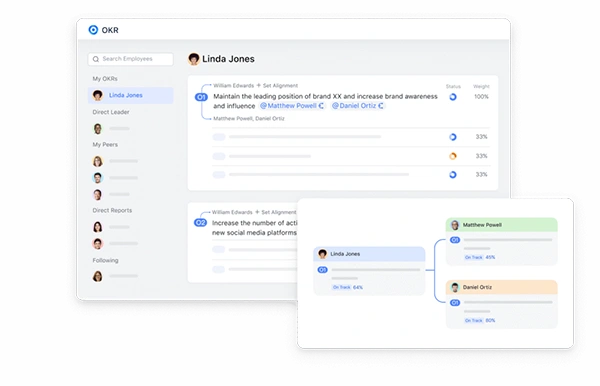
Lark OKR
Accountability is more than simply getting work done—it’s about delivering results. Lark OKR makes it easy to connect individual work to organizational goals, so anyone can see how their work (individual tasks or multi-week/sprint long project work) connects to a broader strategy.
Dashboards provide real-time tracking of project progresses, alignment views show how each element is rolled up in line with higher organizational goals, and reminders keep cycles active.
This allows employees to do what is assigned while also understanding the impact of their work. A marketing manager’s campaign goal might connect to revenue targets, while an engineer’s feature release could also align with customer satisfaction metrics. OKRs build accountability, from checking boxes, to actual outcomes, creating responsibility at all levels.
Conclusion
Accountability does not thrive in reminders or micromanaged environments – but in environments where ownership is transparent, decisions can be traced back through a clear process, timelines are visible, and performance is connected to strategy. Lark is that environment.
Base makes accountability explicit with ownership and responsibility stated clearly;Approval links ownership to the decisions we make, while Tasks highlights today’s deadlines, ensuring ownership stays clear and visible. Messenger connects our conversations to actions that are agreed to be acted on.
Minutes take our meeting process and holds us each accountable for ownership and follow-up; Calendar embeds deadlines into schedules; and OKRs connect our work to strategic outcomes. Together, these tools weave accountability into daily actions, making it a natural working habit rather than something employees must consciously remember.
